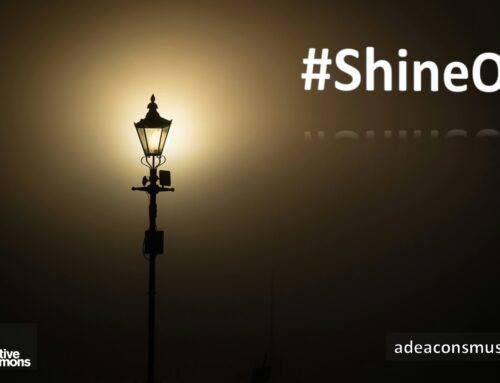I was recently listening to a podcast of CBC's Tapestry entitled, Lessons for Loving. During the programme, gerontologist Karl Pillemer shared his work on The Legacy Project. During this research, he interviewed men and women over the age of 65 and asked, "what they had learned about how to live a good life?"
As I listened to the podcast, during a Sunday walk, it got me to thinking – seriously reflecting – about the wisdom in our midst and the reality that the church often mirrors a secular tendency to celebrate youth and to view ageing as a problem or something to be fixed, as opposed to gift. With the idea of age, youth and wisdom, I began to muse …
One of the commandments, which we often leave unspoken, is the direction Moses received to teach the people. This commandment laces its way throughout the Book of Deuteronomy. We are directed to share the journey of the people with the next generation. We are encouraged, through Moses as model, to not only share the story, but also to recognise that wrestling with moral ambiguity, challenging ethical considerations and navigating ideas such as purity, diversity, plurality has never been easy and – perhaps more importantly – has never been reducible to 'right' and 'wrong.'
I know that there are many ways in which I could blog about this. Whether that be about our own cultural social-economic context and the demographics that face us with an ageing population that has access to a proportion of wealth that leads to questions and critique. Or perhaps the reality that a younger demographic continues to educate itself in a financial paradigm that is only creating part-time, no benefit jobs that leads to economic subsistence and – often – an inability to attain a standard of living in which they were raised. All important and appropriate discussion and – perhaps – some might like to explore such options in an ensuing discussion after reading this blog.
What I feel called, however, to address is the reality that so much richness and depth is lost when we live into any temptation that leads us to segregate the generations. The reality is that our Elders have wisdom and experience that cannot be dismissed, but too often readily is.
As we wrestle with those questions of financial context, we have men and women – Brothers and Sisters – who have living memories of the 1920s and 30s Great Depression. What might they have to say to us if we made space to listen? This is about relationships, not who is right or wrong. But if our faith communities are this age or that, separated by this kind of worship or that then all we experience is the stereotype. Then the gift of wisdom does not become a resource for those who will one day themselves become Elders.
No matter whether you come to church, consider coming to church, or attend once in a while, the Early Church made space for those wanting inspiration, challenge, healing, solace, succour, and to address the ills of the day. But – and this is the distinction – those reasons were grounded in the model of Jesus that began in community.
Though we can look to the Early Church as an example, it is in the example of Moses and the exile from Egypt and the journey through the desert. If we are not in community, if all of the ages are not present, if the passion of youth and the wisdom of experience do not mingle to imagine news ways to be community in new contexts then Sacred Stories simply become mediocre morality plays that leave one wanting … not resurrected!
The institutional walls should always look beyond themselves – we should be enabling one another to go into the world to offer Good News without need for recognition or proving anything. But that grounded faith that simply wishes to serve must begin in the communities of faith that endeavour to prepare the disciples of tomorrow today. The challenge is whether we can do that when we stand on the cusp of internalising the secular temptation to keep generations apart, as opposed to encourage that we are made whole when all are at the Table.
As with any challenge, I do not claim to have the answers, simply the observation that things seem askew . . .
Beginning to dismantling them in your faith community can be a model how to bring it to a world already entrenched in a culturally dominant narrative that inappropriately glorifies one age and proportionately diminishes another. Something that the ministry of Moses reminds us is not the way to abundance and blessing that the Divine longs for us to live into …








Your reflections are most welcome!